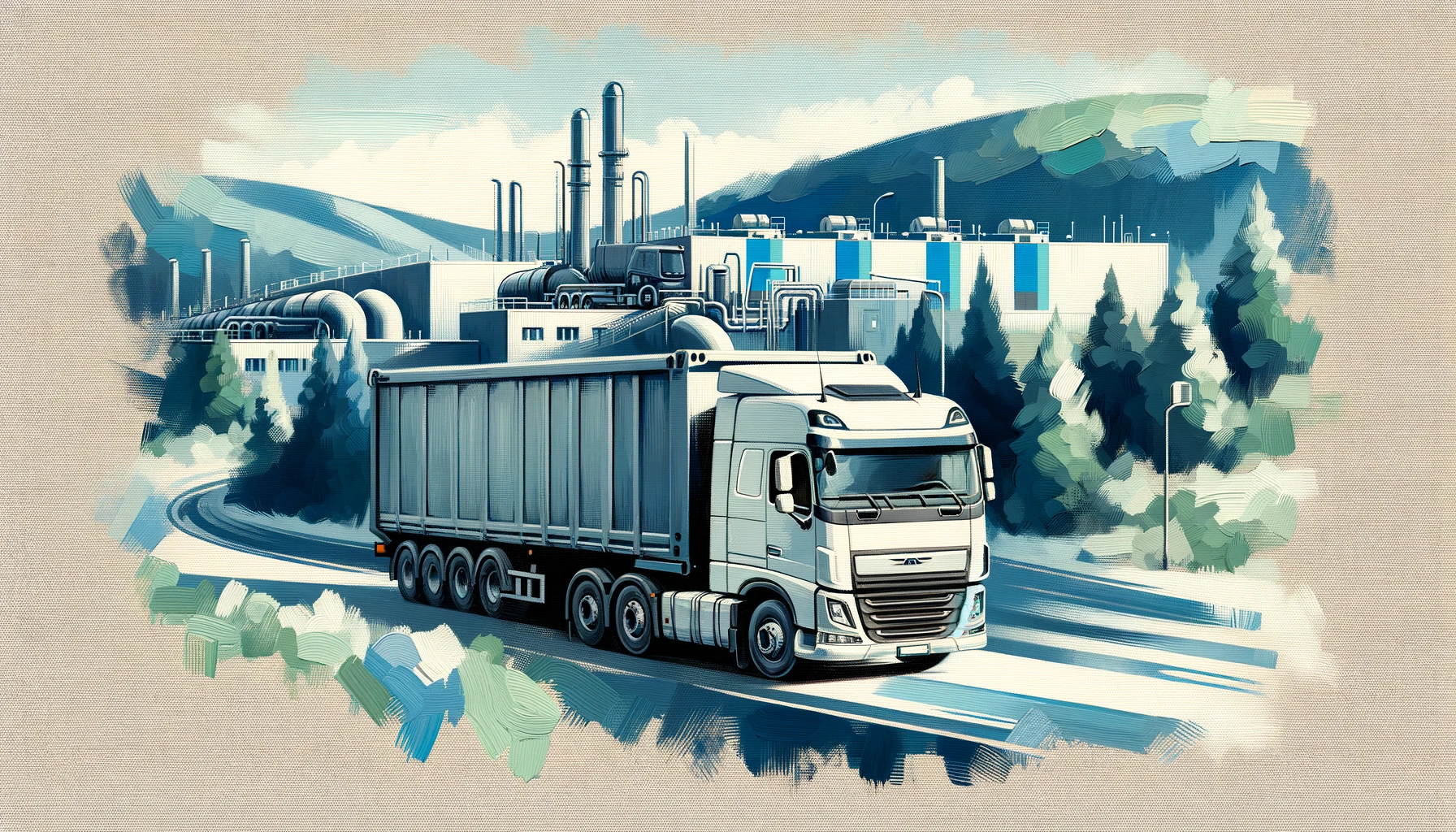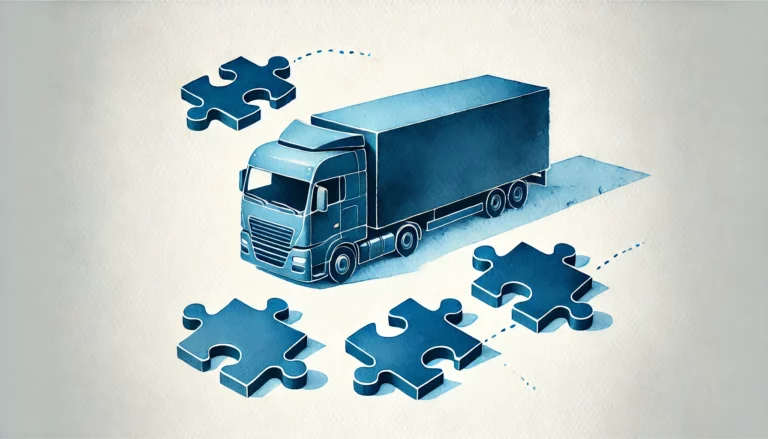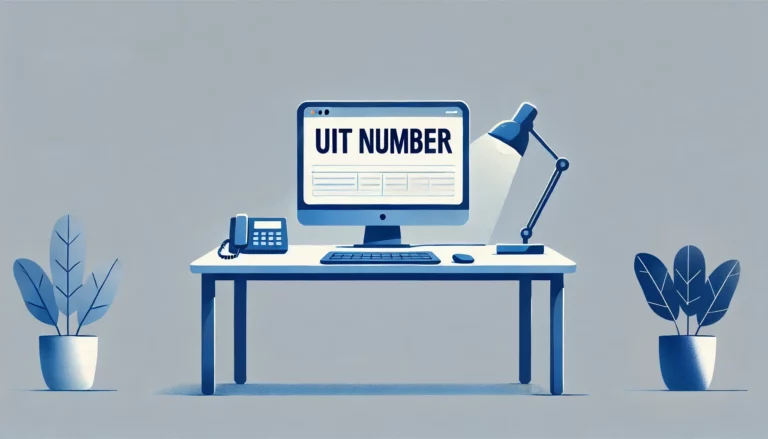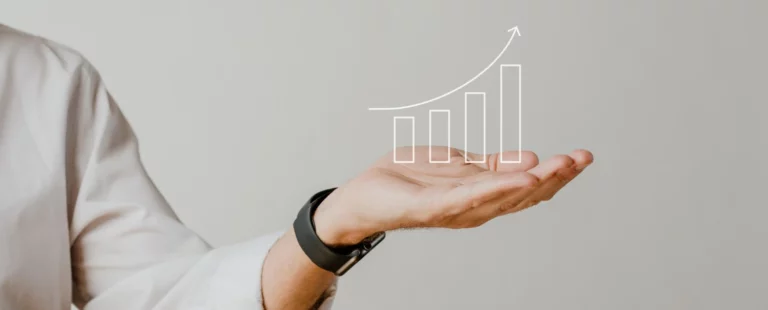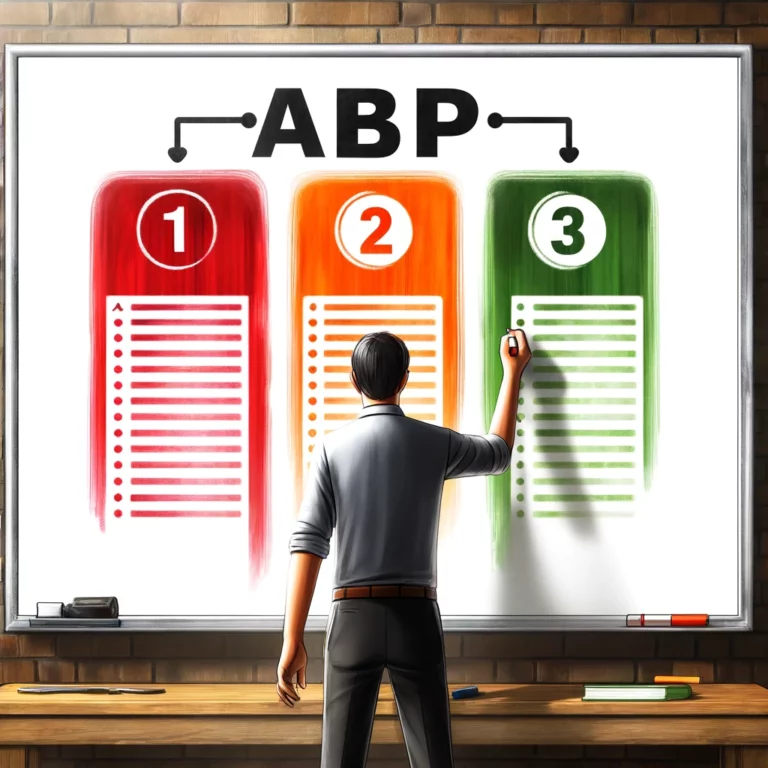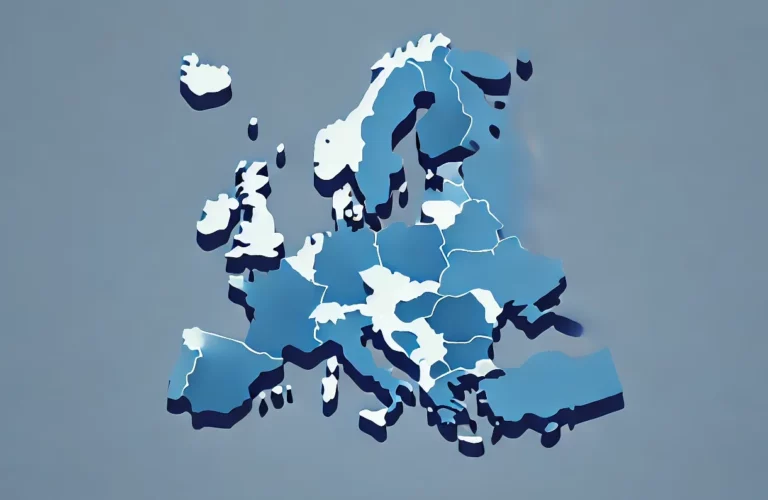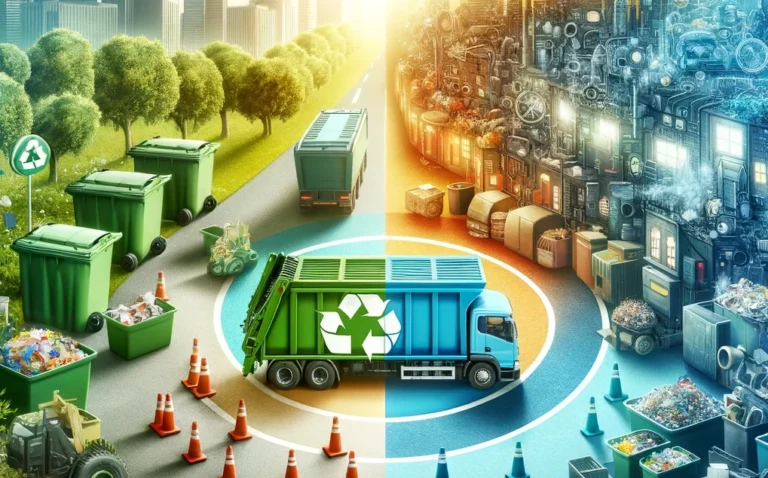Missed recycling targets: a brief analysis of EU countries’ struggles
Effective waste management is a crucial pillar in the European Union’s (EU) drive toward environmental sustainability and the circular economy. Despite collective efforts, many EU nations, including Lithuania, have fallen short of critical targets set under the Waste Framework Directive and related policies. The 2022 European Commission country report on Lithuania sheds light on key areas of improvement, offering valuable insights into the challenges and opportunities ahead.
EU’s waste management targets and their Importance
The European Union (EU) has established comprehensive waste management targets to promote environmental protection, human health, and the transition to a circular economy. These targets are outlined in various directives and regulations, focusing on waste prevention, recycling, and reduction of landfill use. Below is an overview of the key EU waste management targets:
Municipal waste recycling:
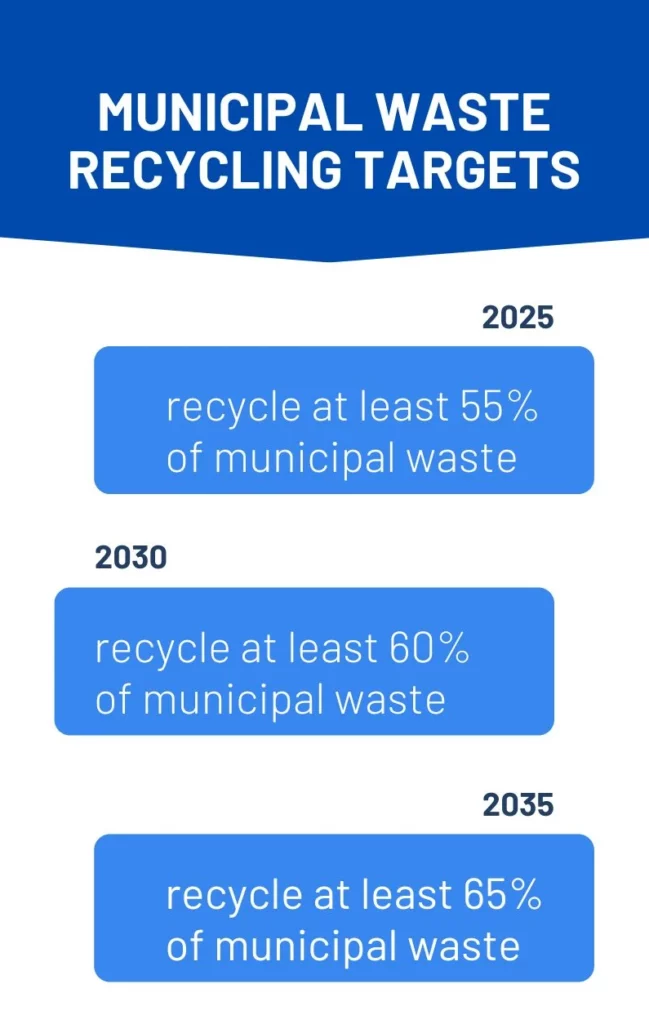
Packaging waste recycling:
- By 2025: Achieve the following recycling rates for packaging materials:
- Overall: 65%
- Plastic: 50%
- Wood: 25%
- Ferrous Metals: 70%
- Aluminum: 50%
- Glass: 70%
- Paper and Cardboard: 75%
- By 2030: Increase these rates to:
- Overall: 70%
- Plastic: 55%
- Wood: 30%
- Ferrous Metals: 80%
- Aluminum: 60%
- Glass: 75%
- Paper and Cardboard: 85%
Landfilling reduction:
- By 2035: Limit the amount of municipal waste landfilled to a maximum of 10% of the total municipal waste generated.
Waste prevention and reuse:
- Food waste reduction:
- By 2030: Aim to halve per capita food waste at the retail and consumer levels, and reduce food losses along production and supply chains.
- Textiles:
- By 2025: Ensure separate collection of textiles to facilitate recycling and reuse.
These targets are part of the EU’s broader strategy to enhance resource efficiency, minimize environmental impact, and foster sustainable economic growth through effective waste management practices.
These directives are vital not only for resource conservation and pollution reduction but also for fostering economic growth through innovation and green jobs.
Lithuania’s performance: insights from the 2022 report
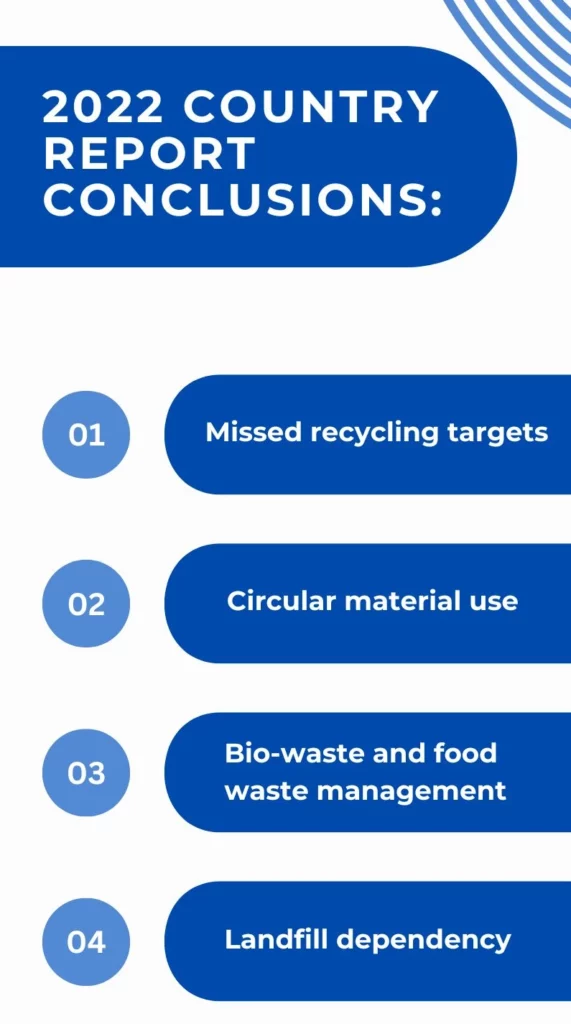
While all EU Member States struggle with keeping the waste management targets at pre-set levels, let’s look closely at Lithuania’s situation to try and understand where are they coming from. The 2022 European Commission country report highlights several critical observations regarding Lithuania’s waste management performance:
1. Missed recycling targets
Lithuania failed to meet the 50% recycling target for municipal waste by 2020. According to the Eurostat’s data, the country’s municipal recycling rate stood at only 45.3%, slightly below the EU average and short of the directive’s requirements, amd it declined further in the following year. This highlights ongoing challenges in waste separation, collection infrastructure, and processing capacity.
Thankfully the country overcame this issue and we saw an increase of recycling rate in the following years, with latest data from 2022 showing 48,4%. Will it reach its all-time high rate of 52,6% from 2018? It remains to be seen. One thing’s for sure – Lithuania is not sitting idly by but is taking appropriate measures to improve the situation.
2. Circular material use
Lithuania’s circular material use rate, a metric reflecting the percentage of materials recovered and reintegrated into the economy, is 4.4%, far below the EU average of 12.8%. This discrepancy underscores inefficiencies in recycling systems and limited adoption of circular economy principles.
3. Bio-waste and food waste management
The report emphasizes Lithuania’s struggles with bio-waste, which constitutes a significant share of municipal waste. Many municipalities lack adequate systems for the separate collection and treatment of food and organic waste, leading to higher landfill rates.
4. Landfill dependency
While Lithuania has reduced its reliance on landfilling compared to previous decades (in 2016 the reports showed almost 30% of waste being landfilled), it still send 16% of its municipal waste to landfills, which is still above the EU’s 10% target by 2035. This dependency not only contributes to greenhouse gas emissions but also reflects gaps in recycling infrastructure.
Barriers identified in the report
The 2022 report outlines several systemic barriers hindering Lithuania’s progress:
- Infrastructure gaps: Limited availability of modern recycling and treatment facilities for municipal, packaging, and electronic waste.
- Policy and enforcement: Ineffective implementation of producer responsibility schemes and insufficient enforcement of waste separation rules.
- Public participation: Inconsistent awareness campaigns and education efforts to encourage proper waste sorting and recycling at the household level.
Lithuania’s efforts to improve waste management
In response to the challenges outlined in the report, Lithuania has taken steps to align its waste management practices with EU standards:
1. Legislative and policy changes
Lithuania has enacted laws to strengthen the extended producer responsibility (EPR) framework. These measures aim to hold producers accountable for the lifecycle of their products, including post-consumer waste management.
2. Focus on bio-waste
The government has prioritized bio-waste management by allocating resources to develop separate collection systems and composting facilities. These initiatives aim to reduce landfill dependency and promote nutrient recovery.
3. Investment in recycling infrastructure
To close the infrastructure gap, Lithuania is modernizing recycling centers and increasing the capacity for processing mixed and recyclable waste. The country also aims to introduce advanced technologies for sorting and treatment.
4. Public awareness campaigns
Efforts are underway to educate the public on the importance of waste sorting and recycling. Tailored campaigns target specific demographics to ensure widespread adoption of sustainable waste practices. Recent data indicates a decline in waste-sorting practices among Lithuanian residents. A survey conducted in early 2023 revealed that 73% of the population engaged in waste sorting, a decrease from 81% in 2022. This suggests a downward trend in the adoption of sustainable habits, including waste sorting.
Environmental and economic implications
Lithuania’s struggles in meeting EU waste management goals have significant consequences:
- Failure to recycle more waste contributes to resource depletion, greenhouse gas emissions, and pollution of soil and water. Addressing these issues is crucial for biodiversity and ecosystem health.
- Enhancing waste management systems could boost Lithuania’s economy through job creation in recycling industries and the development of circular business models.
Waste management in Lithuania – call to action
The EU’s ambitious targets are not mere bureaucratic exercises—they are essential for combating climate change, conserving resources, and transitioning to a sustainable future. Lithuania’s challenges reflect a broader issue across the EU, where none of the Member States met the 2020 recycling targets.
To accelerate progress:
- The EU must provide targeted funding and technical support to help countries like Lithuania close the infrastructure and policy gaps.
- Lithuania must strengthen enforcement measures, such as penalties for non-compliance with waste separation laws, while incentivizing businesses to adopt eco-friendly practices.
The 2022 European Commission report underscores Lithuania’s ongoing challenges in waste management, including missed recycling targets, landfill dependency, and insufficient adoption of circular economy principles. However, it also highlights opportunities for growth through policy reform, infrastructure development, and public engagement.
As a member of the EU, Lithuania must intensify its efforts to align with European waste management directives, not just to meet legal obligations but to secure a sustainable and prosperous future for its citizens. By addressing these challenges, Lithuania can position itself as a leader in sustainable waste management and contribute meaningfully to the EU’s collective environmental goals.

